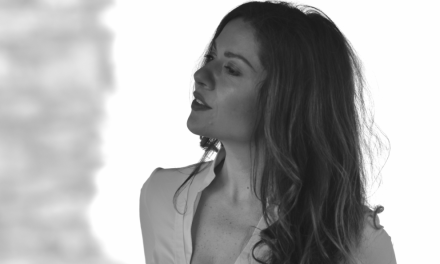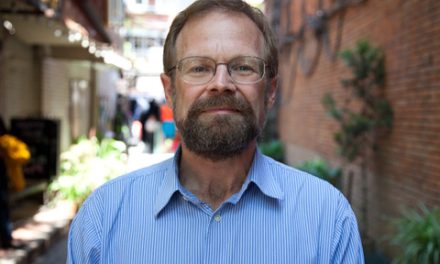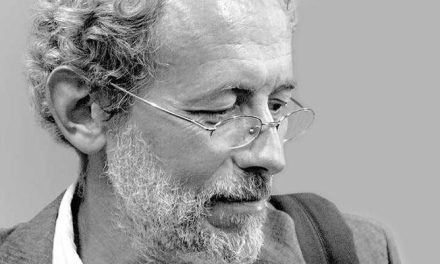Fotis Dousos was born in Serres in 1980. He studied theater at the Aristotle University of Thessaloniki and he is a PhD candidate of the University of Crete. His research focuses on the development of plot in Greek literature. He is a creative writing teacher, producer, director and writer. He has published several books for children and adults, many of which were nominated for literary awards. He also writes theatrical plays and scripts.
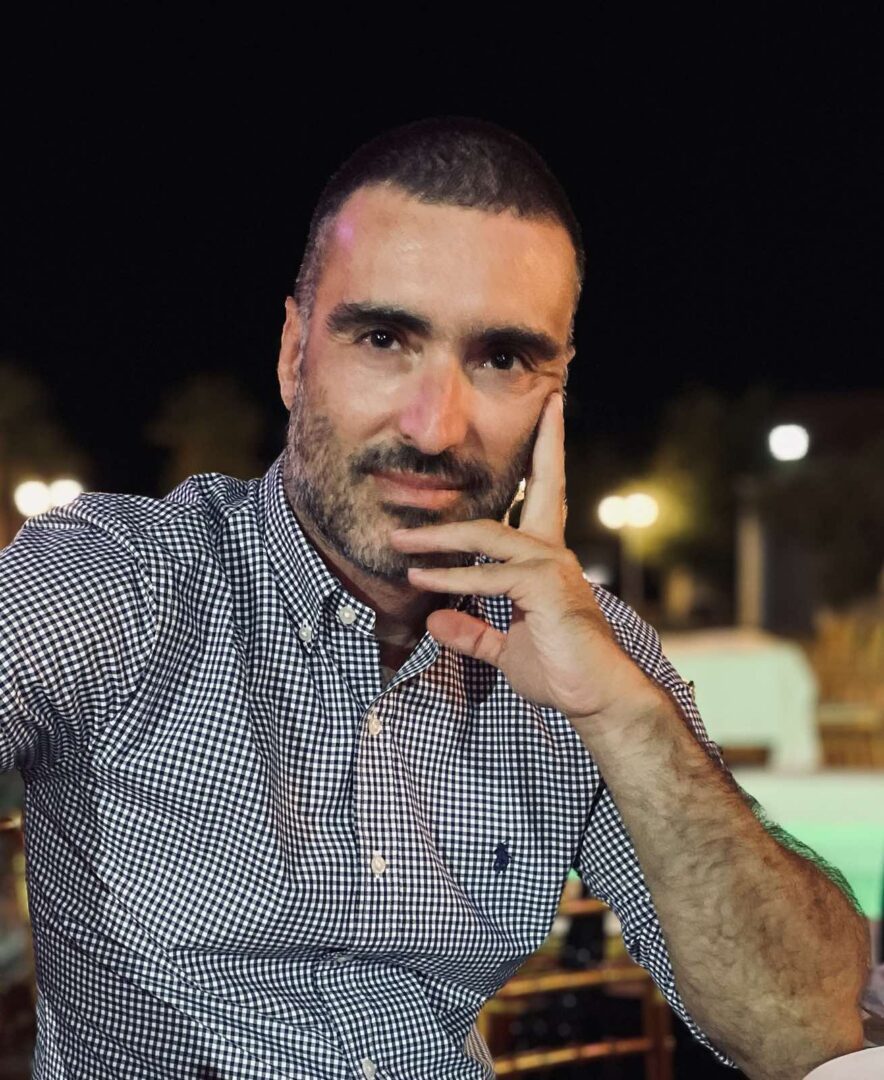
Your latest writing venture Τέλεση [Telesis] (nissos, 2023) received quite favorable reviews upon publication. Tell us a few things about the book.
My novel is an existential drama with symbolic overtones and pervasive allegory. It is based on a rather unrealistic concept in which an actor glues a theatrical mask to his face in an attempt to become one with the role according to the famous Actor’s Studio method. The mask depicts Iago, the notorious villain, and despite the fact that it is expected to come off after a couple of days, it remains attached to the actor’s face and thus affects all areas of his personal, social and professional life. Because the setting is completely unrealistic I have tried to enhance the plausibility of the premise by using first-person narration and going into technical details gathered through careful research.
“I love heroes who despair deep in the story. That’s a guideline for what to do when we’re drawing characters. Letting them despair deeply. Go to the extremes”. Tell us more.
Fictional heroes unfold all their potential when they are pushed, when we push them to the limit. Then they are called upon to make difficult decisions, to respond to serious dilemmas and to reveal their deepest essence, who they really are. Under conditions of narrative serenity, the heroes become indolent, passive and somewhat predictable. They are doing what they are used to doing. But when we take them out of their comfort zone, they become more inventive, more unpredictable, more open to inner changes.
How did social identities work in the construction of the characters in your novel? Ιn this respect, what role do masks play in our everyday interactions?
Impersonal and general social forces are personified and concentrated in the fictional character. The character acts as a vehicle for them. The social class to which the character belongs as well as their general cultural and economic background determine their place in the story and above all their starting point. An old teacher of storytelling, Lajos Egri argues that the three-dimensional fictional character emerges through the meeting of three factors: the biological (how the character looks on the outside), the social (how others see and treat him), and the psychological (the way in which he is seen and treated by others has an effect on him). The development of the character therefore always comes in relation to his environment and his position within it.
Masks are all the behaviors we adopt in our daily routine in order to survive through the conventions of social life. Sometimes we are wearing masks so as not to confront ourselves as well.
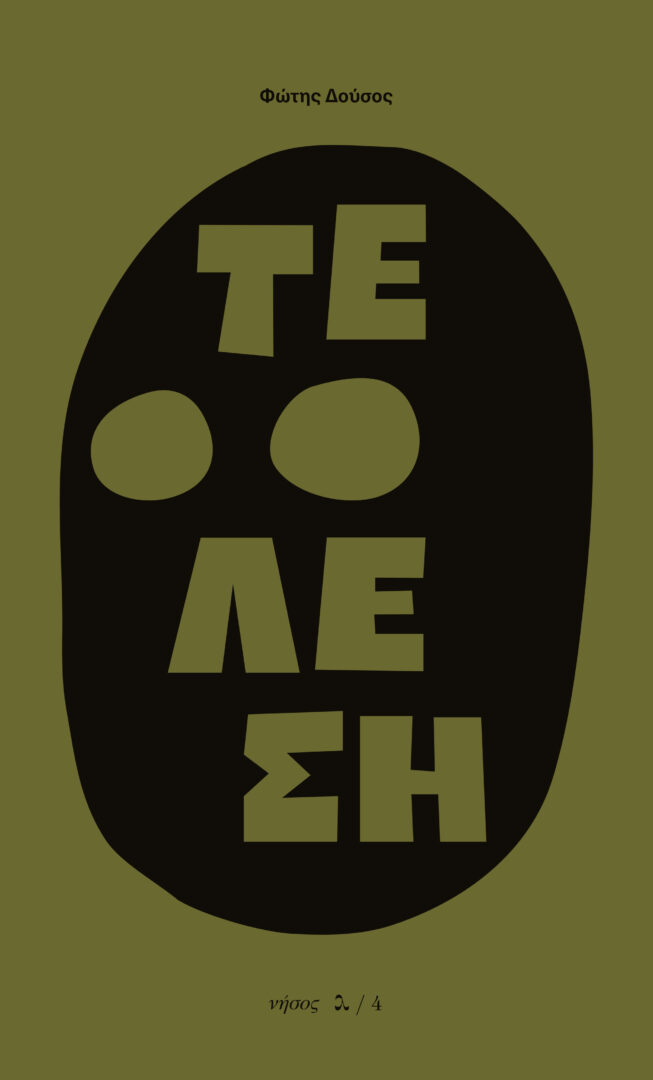
Can an existential thriller, and crime fiction in general, be used to talk about human relations in general or broader social issues?
This sort of thing is often done in recent years with the detective novel. More generally, however, every story wants to talk about issues concerning society as a whole. Literary work is an old and tried artefact that helps humans understand the world around them. It turns its lens towards the big and unsolved questions, not necessarily to answer them, but to confront them, to illuminate them from different angles and make them more understandable.
What about language? What role does language play in your writings?
Just as important as the content. Besides, I don’t distinguish between the two. For me, style, the narrative voice, is not only made by the appropriate choice of words, sentence structure, use of punctuation, etc. It also has to do with the overall aesthetic and rhythm of the prose as regulated by the alternation of narrative techniques, the flow of emotion and the ideological background of the text.
I check the language of my fiction by reading out loud the final draft. I usually have audience in these readings: my wife. She is a music teacher and judges my stories in musicological terms. Some parts need to be more forte or more piano, staccato or legato, tense or soft. In other parts the tempo must change with a narrative acceleration or deceleration. All the elements of writing must ‘sing’ and make music.
Fiction, theatre, music, theatrical plays, essays, children’s books. Where do all these attributes meet? Which do you consider to be the binding thread?
An inner need for human communication and contact. I believe that we are not writing for ourselves. Literature is a means to find others. It’s a social game.
*Interview by Athina Rossoglou
TAGS: LITERATURE & BOOKS | READING GREECE


